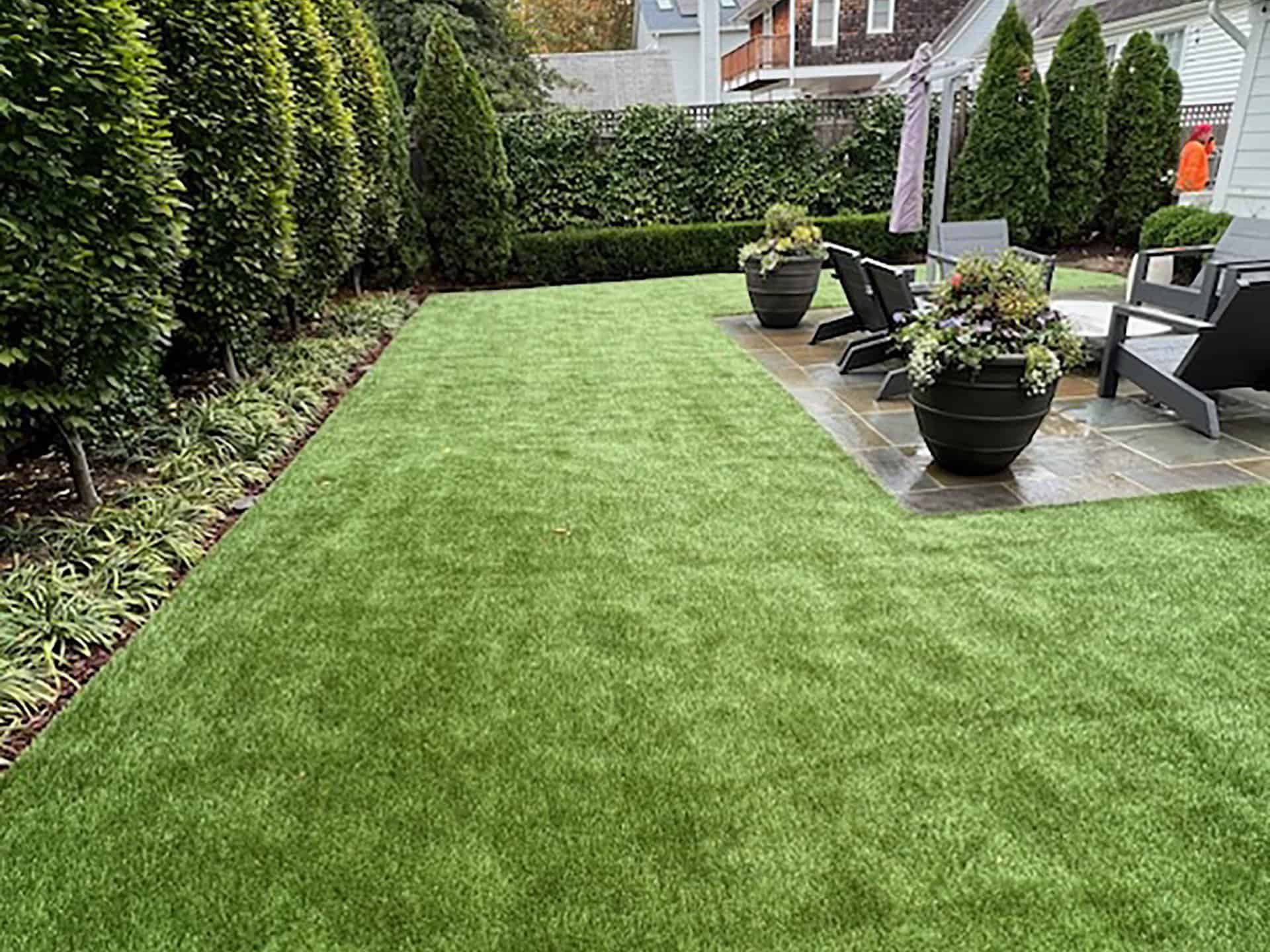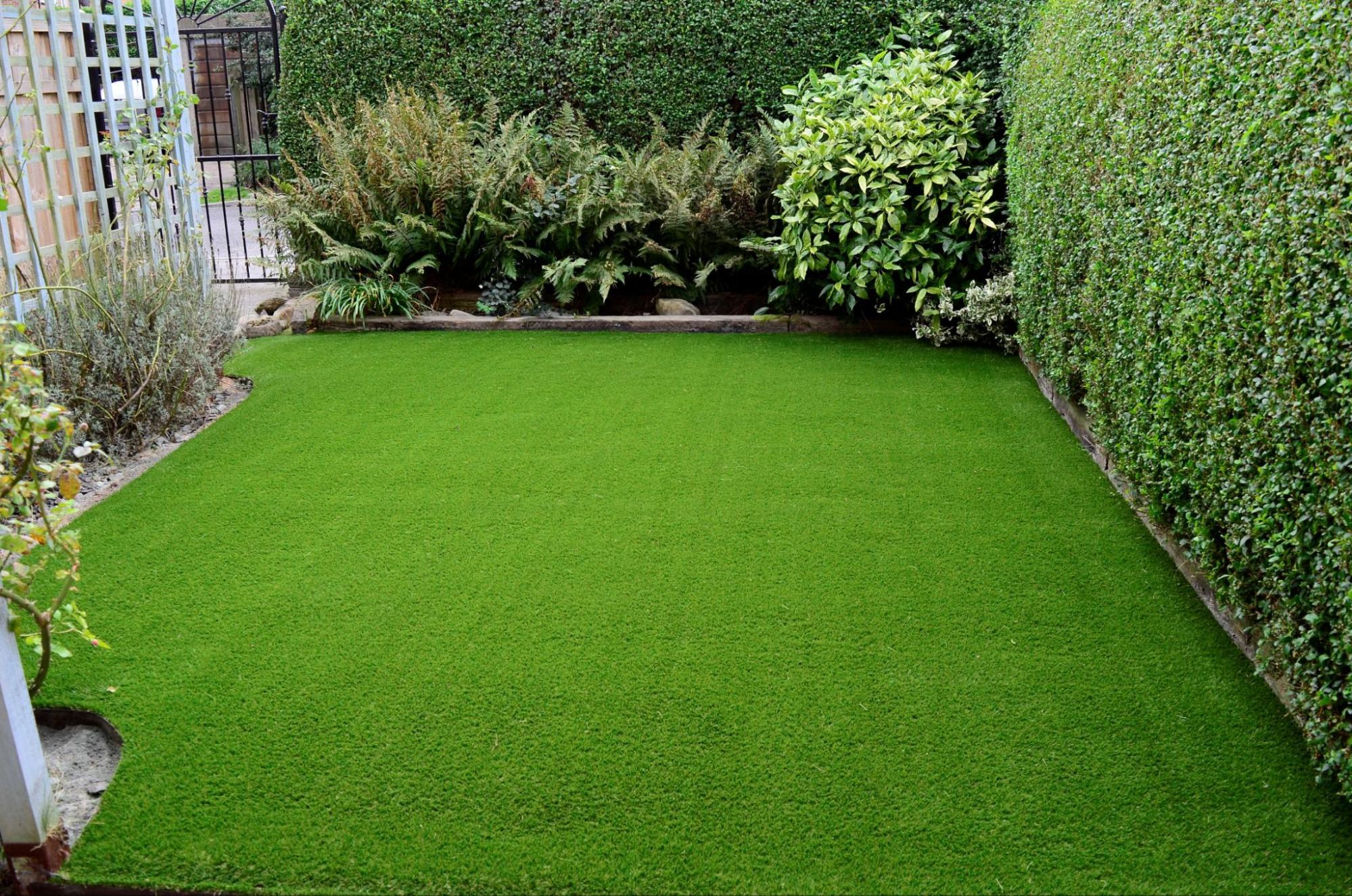Find the Top Artificial Turf Companies Phoenix for Your Home or Commercial Space
Find the Top Artificial Turf Companies Phoenix for Your Home or Commercial Space
Blog Article
Delve Into the Environmental Benefits of Opting for Artificial Lawn Solutions
The adoption of man-made grass options provides an engaging possibility to address pushing ecological difficulties. By dramatically reducing water use and reducing the application of harmful chemicals, these options not only advertise lasting landscaping however also protect regional ecosystems.
Water Conservation Conveniences
One of the most significant benefits of artificial turf is its capacity to conserve water. In contrast, fabricated lawn does not require watering, dramatically minimizing the overall need for water resources.
By eliminating the demand for routine watering, synthetic grass adds to lasting landscape practices and assists mitigate the ecological effect of too much water consumption. Moreover, the preservation of water reaches the reduction of overflow, which can lead to soil disintegration and waterway contamination.
Additionally, the installation of fabricated lawn allows municipalities and property owners to assign water sources more successfully, concentrating on essential uses such as drinking water and agriculture. The shift towards synthetic grass not only promotes responsible water usage however also aligns with more comprehensive ecological goals focused on protecting all-natural sources.
As neighborhoods significantly prioritize sustainability, the water preservation benefits of synthetic grass offer an engaging situation for its fostering in household and commercial landscaping jobs.
Lowered Chemical Usage
The change to man-made lawn considerably reduces the dependence on chemical treatments typically used in all-natural lawn upkeep. Standard turf management normally includes the application of herbicides, plant foods, and chemicals to promote development and control parasites. These chemicals can present dangers to human health and wellness, local wildlife, and the setting, contributing to dirt and water contamination.
In contrast, artificial lawn removes the requirement for these damaging materials. By decreasing the release of synthetic compounds right into the ecological community, artificial grass advertises much healthier soil and water systems.
In addition, the lack of chemical overflow related to synthetic grass installments aids shield local rivers from air pollution, sustaining marine life and maintaining biodiversity. Phoenix turf companies. As areas progressively prioritize lasting methods, going with synthetic turf provides a practical remedy that aligns with environmental conservation objectives. Through this change, homeowner can delight in lavish environment-friendly areas without jeopardizing ecological health, leading the way for a more sustainable future
Reduced Carbon Footprint

Furthermore, the installation of man-made lawn can cause significant water preservation. Natural lawns call for considerable quantities of water for irrigation, which not only includes in the carbon footprint connected with water extraction and treatment but also strains local water resources. In contrast, synthetic grass needs very little upkeep, requiring no watering, thereby considerably decreasing water usage and its associated energy prices.
In addition, the long life of fabricated lawn adds to its decreased carbon effect. With a life expectancy of as much as 15 years or more, the demand for constant substitutes is reduced, leading to less waste and reduced power usage in manufacturing and getting rid of conventional turf alternatives. On the whole, fabricated grass presents a lasting choice for environmentally mindful landscaping.
Environment Preservation
Habitat preservation is an essential factor to consider in the dispute over landscape design choices, especially when contrasting synthetic grass to all-natural grass. All-natural turf yards usually need extensive upkeep, including using fertilizers, chemicals, and herbicides, which can adversely affect local ecological communities. These chemicals can leach right into the soil and waterways, harming native vegetation and fauna and interfering with local environments.
In contrast, great site synthetic grass provides an opportunity to minimize the eco-friendly footprint of landscape design. By choosing synthetic lawn, homeowners can lessen the disruption of natural environments linked with conventional yard treatment practices. Synthetic lawn removes the need for dangerous chemicals, thereby safeguarding neighboring wild animals and maintaining the integrity of bordering communities. Moreover, the installment of synthetic grass can cause the conversion of former turf areas into even more biodiverse landscapes, such as pollinator gardens or native plant locations, which can support regional wildlife.
Ultimately, the transition to man-made lawn not just saves water and decreases maintenance initiatives yet likewise fosters a more unified connection between human activities and the all-natural atmosphere, promoting environment conservation at the same time.
Long-Term Sustainability
Long-term sustainability is a critical variable in reviewing the advantages of synthetic lawn over standard lawn yards. One of one of the most significant benefits of fabricated turf is its resilience; it can last up to helpful hints 15-20 years with marginal maintenance, whereas all-natural lawn requires constant reseeding and replacement. This long life minimizes the need for consistent resources, such as water, plant foods, and pesticides, which are crucial for preserving a healthy turf lawn.
Furthermore, synthetic lawn contributes to a decrease in carbon emissions related to lawn treatment equipment. Standard grass commonly require gas-powered mowers, leaners, and blowers, all of which add to air contamination. Turf installation phoenix az. On the other hand, artificial grass eliminates the demand for such devices, advertising a cleaner environment
Furthermore, the manufacturing of synthetic grass significantly utilizes recycled materials, improving its sustainability profile. As producers take on environmentally friendly techniques, the ecological footprint of synthetic grass proceeds to lessen.

Final Thought
The adoption of fabricated grass solutions provides significant environmental benefits, including significant water conservation, lowered reliance on harmful chemicals, and a reduced carbon footprint. Synthetic lawn aids in protecting all-natural environments by reducing land disruption and advertising long-term sustainability with the usage of wikipedia reference resilient materials. Collectively, these factors highlight the possibility of synthetic grass to add favorably to environmental health and wellness and supply a viable alternative to standard landscape design practices in a progressively resource-conscious globe.
In comparison, fabricated turf does not need watering, substantially lowering the overall demand for water resources. By reducing the release of artificial substances right into the ecological community, artificial turf promotes healthier soil and water systems.
Moreover, the installment of fabricated lawn can result in substantial water conservation. In contrast, fabricated turf requires minimal maintenance, calling for no watering, thereby considerably minimizing water use and its connected power expenses.

Report this page